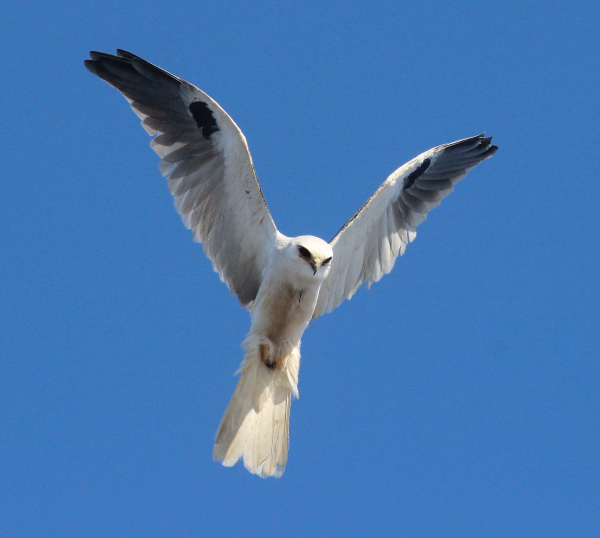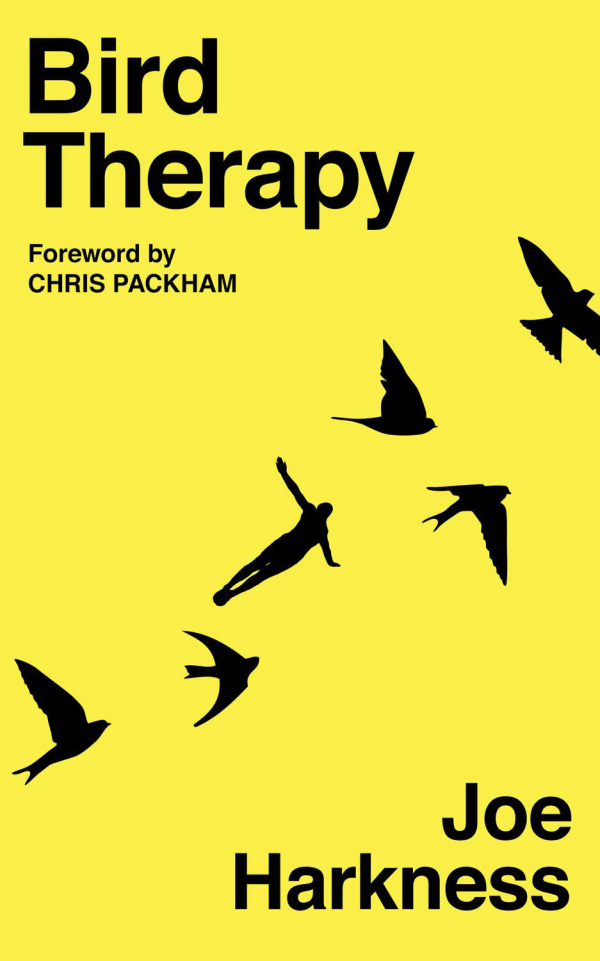
The angelic hover of a White-tailed Kite provides an image to inspire; share your enthusiasm for birds and birding – even as a health aid.

The new book, Bird Therapy.
|
Birders understand the personal health values of birding, especially when it gets us outdoors for fresh air and exercise in the process. A birding break is known to relieve stress, clear your mind, and improve your sense of happiness. In a new book entitled Bird Therapy, author Joe Harkness describes his struggles with mental health and uses his own birding experiences as examples of how birding helped him, and he offers some advice for getting the most out of the activity and its therapeutic effects.
Since he was young, Harkness struggled with his mental health, eventually self-medicating by turning to drugs and alcohol. After suffering a breakdown in 2013, he took time off work to care for himself and began spending more time outside, particularly birding. “Because I've been trapped by my mental health for so long, I found birds’ freedom and their majesty quite enchanting,” he confided. “I wanted to experience that feeling again, so I decided to take a bit more of an interest in what was around me bird-wise when I was outside.”
Harkness began writing a blog called ‘Bird Therapy,’ with his first post documenting an awe-inspiring birding event – a migration fallout – and the positive feelings he gained through that birding experience. After many more revelations and blog entries, Harkness decided to spin his Bird Therapy blog series into a book. Especially helpful in the book, he offers a few birding-related suggestions after each chapter, such as:
·- Find a local birding location to visit regularly. The consistency and security of visiting a familiar birding site can help you connect with nature, yourself, and your health.
·- Familiarize yourself with the natural sounds of your bird community, either in your own yard or in a place you visit often.
·- Explore different birding locations during different weather conditions as they alter the activities of local avifauna.
·- Contact or join local birding groups or clubs, as they can improve your local birding network and help you to interact with others who share your interest in birds.
With tips like these at the end of most chapters, it’s clear that Harkness didn’t just write Bird Therapy to help himself. By sharing his experiences, he hopes the book will guide people who have had similar downturns to embrace nature and birding as a form of self-care. “I think that it’s going to do a lot of good,” Harkness said, “even though I didn’t allow myself to think that for a long time.”
For more insights into Harkness and his new book, Bird Therapy, see https://www.audubon.org/magazine/winter-2019/birding-benefits-how-nature-improves-our-mental